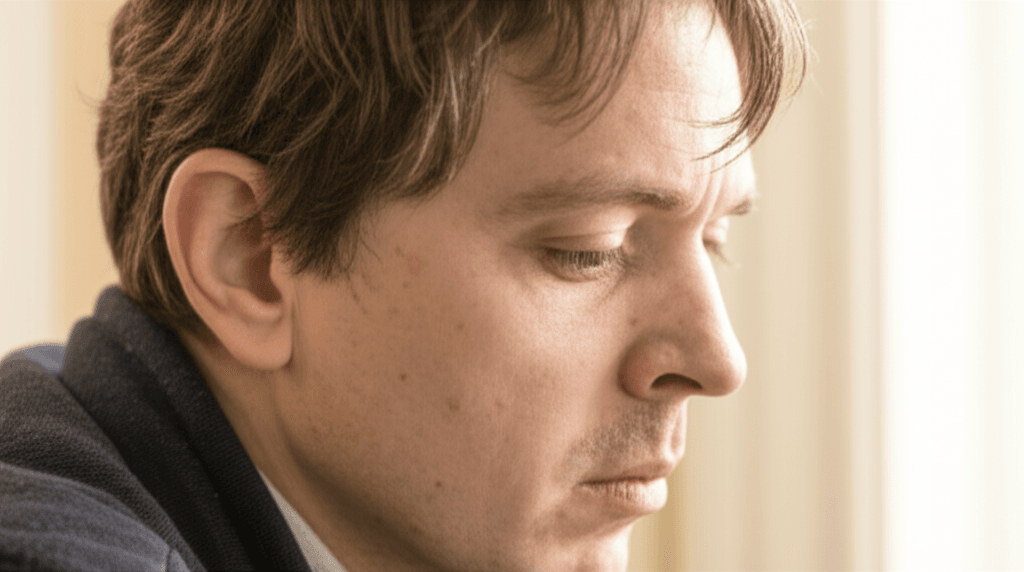In an age where “hustle culture” often glorifies sacrificing rest, a stark warning from fitness coaches and scientific studies is cutting through the noise: sleep deprivation, even for a few days, can have shocking and detrimental effects on both your physical and mental well-being. Far from being a mere inconvenience, consistently missing out on adequate sleep initiates a rapid decline in crucial bodily and cognitive functions, with anxiety levels potentially soaring.
Fitness coach Yash Vardhan Swami recently highlighted the severe repercussions of insufficient sleep, revealing a timeline of bodily breakdown that underscores sleep as a non-negotiable pillar of health. His insights, echoed by broader scientific consensus, illustrate how skipping even a single night’s rest sets off a cascade of negative effects that worsen dramatically over a week.

The Alarming Truth: Sleep Deprivation’s Rapid Descent
The impact of sleep deprivation isn’t a slow burn; it’s a rapid descent into compromised physical and mental states. Coach Swami’s breakdown offers a day-by-day glimpse into this alarming process.
Day 1: More Than Just Grogginess
After just 24 hours without sleep, the body begins to register significant impairments. Your reaction time can drop by as much as 25%, akin to being legally intoxicated. Alertness, attention span, and executive function are all reduced, increasing the risk of errors and accidents in daily tasks. Stress hormones like cortisol and adrenaline increase as your body attempts to compensate for the fatigue. You may also experience irritability and anxiety.
Day 2: Cognitive Functions Take a Hit
Pushing past 24 hours intensifies the effects. By the second day of poor sleep, working memory can be reduced by up to 35%, significantly slowing down decision-making processes. The overwhelming urge to sleep, known as sleep pressure, becomes intense. You might experience increased appetite and extreme fatigue, alongside microsleeps – brief, involuntary periods of unconsciousness lasting a few seconds – without even realizing it. Cognitive performance continues to worsen, and your ability to process information and maintain concentration declines.
Day 3: Cravings, Hormones, and Microsleeps
By the third day, the repercussions become even more profound. Cravings for junk food can surge by 40%, while your sense of fullness drops by 37%, making it challenging to adhere to a healthy diet. Hormonal imbalances become more pronounced, affecting appetite, metabolism, and mood. Microsleep episodes become more frequent and can last longer, significantly impairing your perception of the world. You may struggle with multitasking, memory issues, and even experience paranoia or a depressed mood.
Day 4-5: Emotional Volatility and Physical Decline
As you approach the 96-hour mark, the body and mind are in a state of severe distress. Insulin sensitivity can decline by up to 30%, leading to easier fat storage and increased lethargy. Emotionally, the impact is severe: mood instability and anxiety can rise by a staggering 45%, profoundly affecting day-to-day functioning and overall mental health. Depersonalization, a feeling of being outside your own body and mind, can occur, and it becomes harder to distinguish between angry and happy facial expressions. Your perception of reality may also become severely distorted.
Day 6-7 and Beyond: Systemic Breakdown
Beyond five days, the body enters a state of significant systemic breakdown. For men, testosterone levels can plummet by up to 20%, accompanied by increased cortisol spikes and slower recovery. After a week of poor sleep, brain waste clearance, a vital process for preventing neurological diseases like Alzheimer’s, can drop by 65%. Immune function can decline by 50%, leaving you highly susceptible to serious health issues, including infections and potentially increasing cancer risk. Hallucinations become increasingly frequent and complex, potentially incorporating multiple senses and making it difficult to discern reality. Extreme sleep deprivation can lead to symptoms resembling acute psychosis, including complex hallucinations, delusions, and disordered thinking. The urge to sleep becomes uncontrollable, and basic tasks become nearly impossible.

The Broader Impact: Body and Mind in Crisis
The effects of sleep deprivation extend far beyond the day-to-day fluctuations, creating a crisis for both mental and physical health.
Mental and Emotional Toll
Sleep is crucial for emotional regulation and cognitive function. When sleep-deprived, people are more prone to irritability, anger, and euphoria. The ability to regulate stress and emotions is severely compromised. Beyond the acute rise in anxiety, chronic sleep deprivation is strongly linked to an increased risk of developing mental health problems such as depression and anxiety disorders. It impairs judgment, decision-making processes, and creativity. Furthermore, research suggests that those already prone to anxiety are particularly sensitive to the mood and emotional effects of insufficient sleep, creating a self-reinforcing cycle where anxiety causes poor sleep, and poor sleep exacerbates anxiety.
Physical Health Consequences
The physical ramifications are equally severe. Sleep deprivation weakens the immune system, reducing its ability to produce infection-fighting substances and making the body more vulnerable to illnesses. Hormonal imbalances are widespread, impacting everything from appetite and metabolism to stress levels and growth hormones. Prolonged sleep loss is associated with an increased risk of serious chronic conditions, including high blood pressure, obesity, type 2 diabetes, kidney disease, stroke, and heart disease. For those engaged in fitness, sleep deprivation impairs physical performance, reduces muscular endurance, and can even negate the benefits of training, increasing the risk of injury and overtraining. Muscle protein synthesis, vital for muscle growth and repair, can be significantly lowered with sleep restriction.

Prioritizing Sleep: A Non-Negotiable for Well-being
The expert consensus is clear: consistent, restorative sleep is not a luxury but a fundamental necessity for optimal physical performance, mental health, and long-term well-being. Adults are generally recommended to get at least seven hours of sleep every night. Implementing good sleep hygiene practices, such as maintaining a regular sleep schedule, creating a relaxing bedtime routine, ensuring a comfortable sleep environment, and avoiding electronic devices before bed, can significantly aid in recovery and prevention of sleep deprivation.
Ignoring the body’s need for sleep is a “high interest loan with steep payments in the form of health consequences,” as one sleep physician aptly put it. Prioritizing adequate rest is the most intelligent and effective strategy for maintaining health, preventing disease, and maximizing both physical and cognitive potential.







